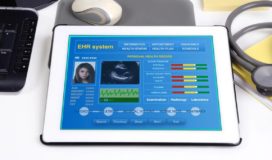Privacy and Security of Electronic Health Records
With the advent of information technology, almost every field is affected by the innovative products that are making our life smoother. The case is pretty much similar in the health industry as well. Nowadays, all the information of the patient is recorded into e-system (EHR & EMR) which enables healthcare providers to quickly access their medical information and provide right treatment within the desired time span. In addition to this, EHR allows the sharing of the medical information among all the healthcare providers for patient’s care.
Is Data Stored on EHR Safe Enough?
EHR is used to store the medical history of the patient among healthcare providers but have you ever thought about the data shared on the system. Is it secure enough to keep the data private and what if the data becomes public or someone tries to steal the data for the wrong purpose? These are the questions that come to mind when we think about the darker side of the EHR.
Fortunately, to address this problem there has been a law called HIPPA (Health Insurance Portability and Accountability Act) enacted to keep the data of the patient private and secure. However, the law does come with various conditions and standards that must be followed in order to keep the information of the patient safe and secure.
EHR is managed by the hospitals and doctors that help them in getting lots of advantages but a patient always has this right to keep his records private. Therefore it should be the responsibility of the providers to adopt such EHR that protects the data of the patient and keeps it private. An EHR system should be such that eliminates every threat to the security and privacy of the patient.
How Can EHR Be Secured?
- Access Controls (Private Passkey) – The healthcare providers including doctor and nurses must have the access control to reach the required medical information of the patient. It is important because to make the necessary decisions and changes in the treatment of the patient there is the need for this access. Sharing of the private password between the right healthcare providers such as doctors and nurses will make the EHR more secured.
- Encryption of data – To make the data secure and out of the reach of the unauthorized users, the medical data of the customer must be encrypted properly.
- Use of software programs – The providers should make use of software programs to keep a watch on those people who accessed the medical data of the patient. These spy software will record the number of times the patient’s data is seen, at what time it is seen and what changes were made to the original data.
- Audit Trail – EHR system should get audit trail done to see if everything is there to keep the data secure. If any discrepancy is found then the necessary changes should be made and certain measures should be adopted to avoid further error.
Health IT




